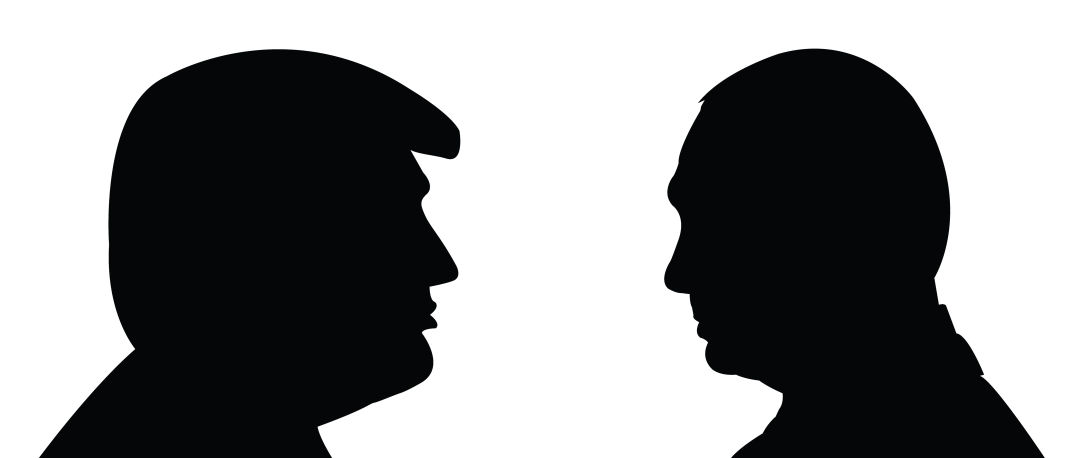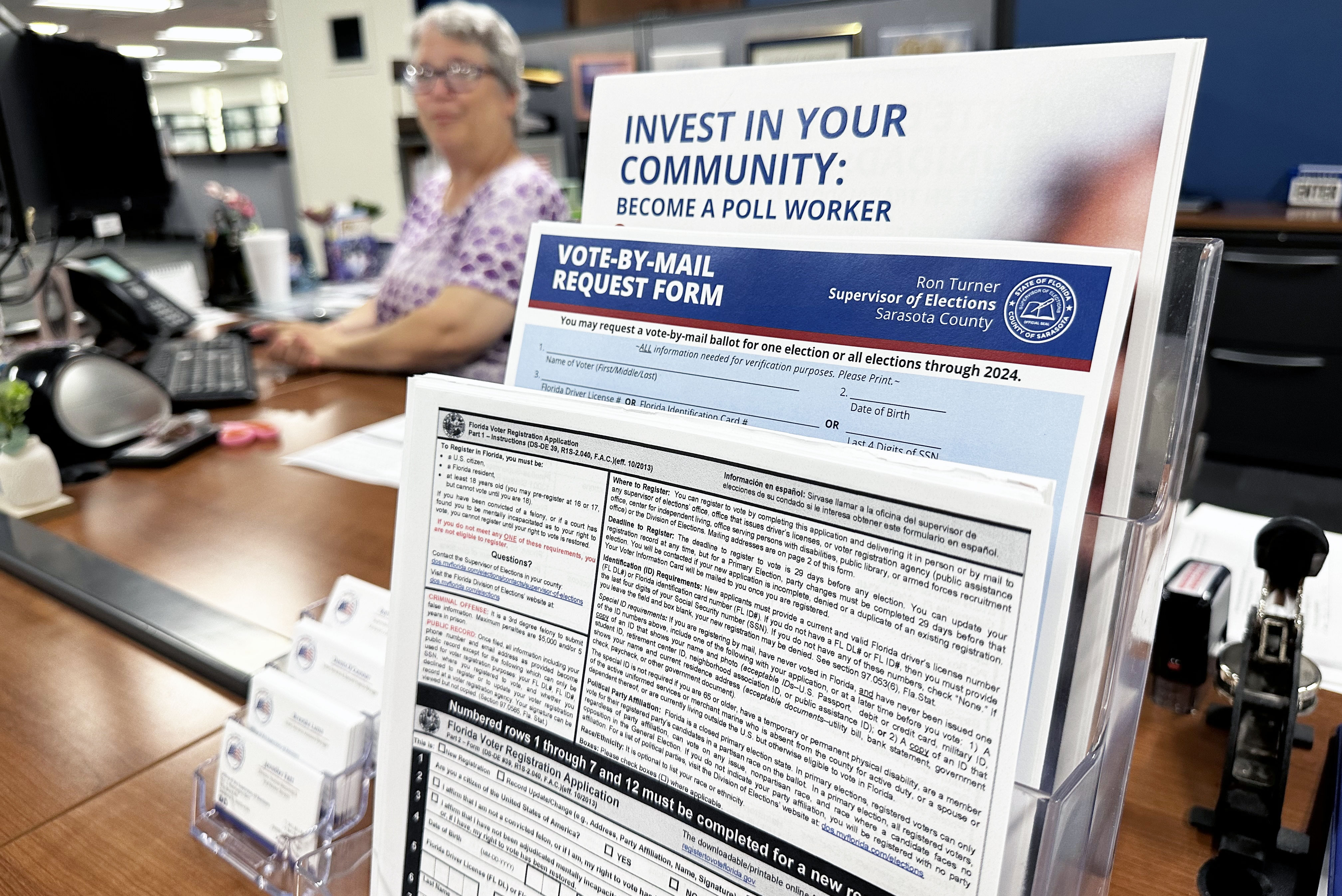A Retired CIA Officer Talks Russia, the 2016 Presidential Election and More

Image: Shutterstock
He arrived at the outdoor café on an early morning, wearing a long shirt, a baseball hat and sunglasses, signaling, perhaps, how little he planned to reveal himself. He had worked for many years for the Central Intelligence Agency, including near the highest level, and is now retired and living in Sarasota.
Sarasota is a haven for retirees, including those from the nation’s intelligence services. So many live here that, until recently, they had a regular CIA luncheon group. But while they may socialize among themselves, they are famously guarded, even in retirement, about inviting attention into a world they long kept secret.
As we sat down, he abruptly put me on the spot. He did not give interviews and had no interest in seeing his name in print. What was I looking for?
I replied that with President Trump’s relationship with the CIA and other intelligence agencies generating so much attention, he could shed insight from the perspective of someone who has been there. He took a long sip of coffee and whisked his hand at my recorder. “Put that thing away,” he said.
“I understand that people have a lot of questions right now,” he said. “That’s why I agreed to meet you.”
We talked for two hours that morning, the start of a series of conversations that went beyond media accounts, partisan spin and guarded Congressional testimony. I was hearing from someone whose views were shaped from decades within the nation’s intelligence community. His sheer reluctance and the ambivalence he felt just sitting across from me in an empty café conversely made me trust him more.
“I’ve never seen anything as successful or dramatic as this Russian campaign against the United States,” he began. “No, they didn’t infiltrate voting machines and change actual votes. But the hacking, the leaking, the fake news all influenced voters. They must see it as their biggest victory since the Cold War. They were able to put a huge cloud over the American election.”
It’s a cloud that is not likely to dissipate for months, perhaps years, he said, as the FBI investigates the extent of Russian involvement and whether Russia coordinated with the Trump campaign.
“Things are moving so fast and yet they’re not,” he said of the investigation, which began in July. “I think we’re looking at 18 months or more.”
The interview turned to Trump’s tweeting. He surprised me by saying that the tweets are just words, not deeds, and far less threatening “to U.S. core values” than what systematically transpired in the United States before the Church committee reforms of the 1970s. Those reforms, led by former Sen. Frank Church of Idaho, were sparked by revelations that the FBI regularly opened the mail of U.S. citizens, the Army spied on Americans and the CIA engaged in covert efforts to assassinate foreign leaders. In other words, he implied, we’ve dealt with far worse.
Still, tweet storms that include unfounded allegations that President Obama wiretapped Trump Tower or compare our intelligence agencies to those in Nazi Germany must be creating “a lot of angst” in the intelligence community, he said. “They can’t figure out what the heck’s going on at 1600 Pennsylvania Avenue.”
Intelligence agencies should never have allowed this fake news to "leak" into the public. One last shot at me.Are we living in Nazi Germany?
— Donald J. Trump (@realDonaldTrump) January 11, 2017
Terrible! Just found out that Obama had my "wires tapped" in Trump Tower just before the victory. Nothing found. This is McCarthyism!
— Donald J. Trump (@realDonaldTrump) March 4, 2017
How low has President Obama gone to tapp my phones during the very sacred election process. This is Nixon/Watergate. Bad (or sick) guy!
— Donald J. Trump (@realDonaldTrump) March 4, 2017
There is “no proof” to Trump’s assertions about wiretapping, he declared. As for illegal leaking, the former CIA officer suspects the source is likely within the White House itself or from “the Hill,” not from members of the intelligence community.
After decades of making intelligent assessments, I told him, you must have a sense of where the investigation is heading and whether the connections between the Trump campaign and Russia were coincidental or collusion. He responded that his interest has been “piqued” by reports of unusual ties between the Russians and Trump associates. But he was cautious about drawing conclusions. All that glitters is not gold, he said.
The FBI’s probe likely has many dimensions, he said, from electronic evidence to interviewing those who may have been involved.
“Follow the money,” he said. “I’d be interested in learning as much as possible about connections with banks in Cyprus.”
Cypriot banks have long been a source for laundering money in and out of Russia. NBC News reported in late March that former Trump campaign chairman Paul Manafort was associated with at least 15 bank accounts in Cyprus in which he received millions of dollars from a Russian billionaire with close ties to Putin.
Another question the former CIA officer would focus on is who ordered changes last July to the Republican Party platform. That change removed a plank to provide weapons to Ukraine to fight Russian and rebel forces. Manafort was paid millions of dollars to represent pro-Russian forces in Ukraine.
He also said to keep an eye “on the bodies,” meaning Russians who have disappeared who were connected with the effort to influence the election. Two prominent Russian intelligence officials and a Russian hacker have not been seen since late last year and have been charged with treason, according to Russian media reports.
Russian interference in the election likely took several forms. One involved the release of Clinton campaign emails by WikiLeaks, which he suggested almost certainly originated from hacking by Russian operatives. Russia also targeted U.S. persons of influence who they could groom to, wittingly or unwittingly, provide information and help further their goals. That makes the case of former Trump associate Carter Page so intriguing. Page, a former foreign policy adviser to the Trump campaign, was the subject of an FBI investigation alleging that in 2013 he shared emails and energy industry documents with a Russian intelligence operative in the United States who was posing as a Russian bank executive in New York, according to a report by BuzzFeed.
No evidence has surfaced suggesting Page shared information with or coordinated with the Russians in the 2016 presidential campaign. But the former CIA official said the Russians try to cultivate such relationships, which often start small and develop for years.
Nearly two hours had passed and our coffee cups had been filled and refilled. I’d taken pages of notes, but I told him I wasn’t sure what to make of them. “Like millions of Americans, I’m nervous,” I said. This seems like uncharted territory, with so many messengers pointing different directions.
“Just be observant,” he replied. “The mainstream media is still a good way to stay informed. Good newspapers and other news sources continue to show why a free press is so important in a democracy. I’m confident we’re going to get through this. We always have.”



